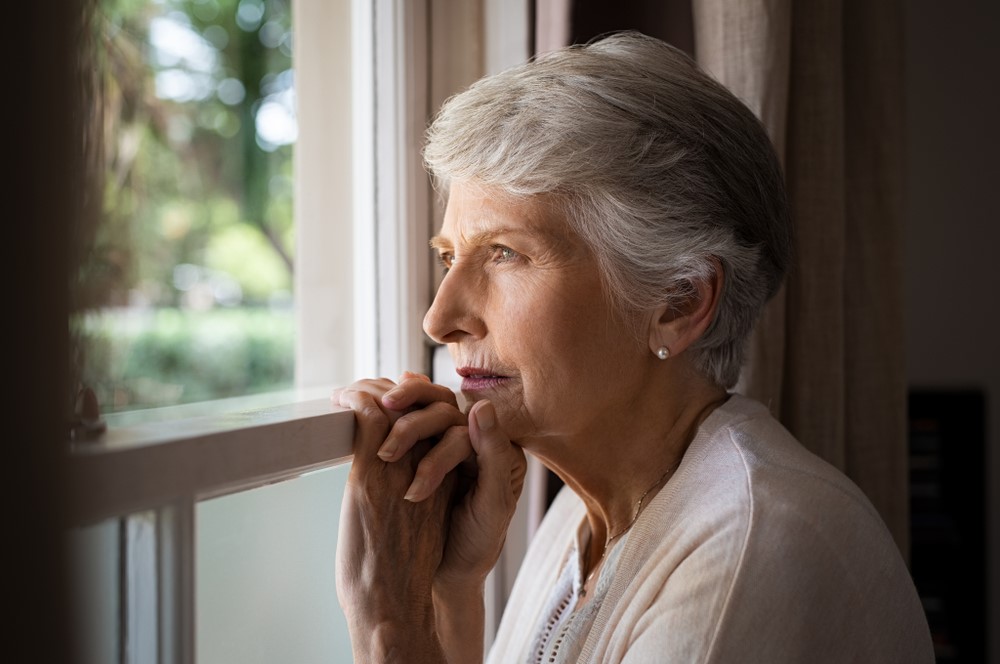
Spirituality plays a significant role in the later stages of life, a time that is characterized by shifting health, relationships, and occasionally, isolation. The process of aging frequently leads to intense contemplation and questioning about the meaning and purpose of life.
Such contemplation can have negative aspects, such as contributing to depression or low mood, yet it can also be positive, helping seniors to find a new sense of meaning in their lives and powerful ways forward. As a result, the search for spirituality becomes crucial to the well-being of many elders.
The Connection Between Aging and Spirituality
As individuals age, their spiritual needs and beliefs tend to evolve. They may transition from religious orthodoxy to a more personal and eclectic spiritual worldview. This shift is often characterized by a search for deeper meaning and connection to something greater than oneself.
It is not uncommon for seniors to explore various spiritual paths or reconnect with their religious roots during this phase. However, the exact path followed differs considerably from person to person.
The Search for Meaning in Later Life
Aging can bring about significant life changes, such as retirement, losing friends and loved ones, and facing one’s own mortality. These transitions can trigger a profound search for meaning and purpose. Spirituality often serves as a guiding light during this quest, offering solace, clarity, and a sense of purpose.
Common Spiritual Challenges Faced by Seniors
Some of the practical challenges faced by seniors, including coping with loss, physical limitations, and confronting existential questions can contribute to spiritual distress if not addressed appropriately. Recognizing and addressing these challenges is crucial to fostering spiritual well-being in senior living.
Caregivers may be able to help by calling attention to problematic topics and encouraging the senior to talk if they need to. Even a simple conversation can be surprisingly powerful, helping the senior to feel that they aren’t facing things alone.
The Search for Meaning in Later Life:
The transitions that come with aging can sometimes be overwhelming and lead for a search for both meaning and purpose in life. This is particularly true for seniors who were strongly identified with a particular role – such as seniors who once saw their job as a huge part of their purpose and identity. For people in that position, retirement can be challenging and may create a sense that they’re now simply drifting along, rather than truly living.
Seniors in such a situation may begin to question the importance of their existence and seek answers to existential questions. Spirituality serves as a guiding light during this quest for meaning. It provides a framework through which seniors can explore their values, beliefs, and the significance of their life experiences.
Spiritual Practices for Seniors
Meditation and mindfulness practices can provide seniors with tools to manage stress, anxiety, and depression. These practices promote inner peace and mental clarity, making them particularly beneficial for seniors navigating the emotional complexities of aging.
Prayer and Religious Rituals
For those with religious affiliations, prayer and religious rituals offer a sense of continuity and connection to their faith community. Participating in religious ceremonies and rituals can provide comfort and a sense of belonging.
Faith is also relevant to caregivers, as a sense of purpose can make the caregiving journey feel less overwhelming. There are even Bible verses that help to address burnout and could make your experience easier.
Yoga and Tai Chi
Physical activity remains essential for seniors to maintain their mobility and overall health. Yoga and tai chi are excellent for physical fitness and promote mental and spiritual well-being. These practices focus on the mind-body connection, fostering a sense of harmony and balance.
Expressive Arts Therapy
Engaging in creative arts such as painting, writing, or music can be a powerful means of self-expression and spiritual exploration for seniors. These creative outlets allow seniors to reflect on life experiences and express their innermost thoughts and emotions.
Such approaches are very helpful for seniors who are not interested in structured religions or have had bad experiences in the past.
Creating a Spiritually Supportive Environment
Senior living communities can play a pivotal role in fostering spiritual wellness by integrating spirituality into their programs and services. Assisted living with spiritual support groups, provides access to chaplains or spiritual counselors, and creating sacred spaces for meditation and reflection.
If the senior lives at home, caregivers may need to provide spiritual support instead. This could include encouraging conversations, helping the senior to go to church or attend a spiritual meeting, or facilitating meetings of people with similar interests within the home.
Being non-judgmental is an important part of this process. Suggesting that the senior is wrong for their beliefs or that they should focus on a different area isn’t at all helpful. You’re likely just to make them feel alienated.
Training Staff to Address Spiritual Needs
Staff members in senior living facilities should receive training in recognizing and addressing residents’ spiritual needs. This training should encompass cultural sensitivity, active listening skills, and an understanding of various religious and spiritual belief systems.
Try raising this topic if a senior plans to move to assisted living or similar environment. Ask about the types of spiritual support available and whether groups of like-minded people meet regularly. Consider too, whether there are any issues that would make the senior feel uncomfortable spiritually, such as a strong focus on some spiritual practices over others.
Fostering a Sense of Community and Belonging
A strong sense of community is essential for spiritual well-being in senior living. Creating opportunities for residents to connect, share their spiritual journeys, and engage in meaningful discussions can help combat feelings of loneliness and isolation.
Recognizing Signs of Spiritual Distress in Seniors

Family members and caregivers should be attentive to signs of spiritual distress in seniors. These signs may include expressions of existential worry, sadness, or a sense of aimlessness. Recognizing these indicators allows for timely intervention and support.
Here are some key aspects to consider when identifying signs of spiritual distress in seniors:
Changes in Mood and Emotional Well-Being
Seniors experiencing spiritual distress may exhibit increased anxiety or persistent worry about existential questions, the afterlife, or the meaning of life. Spiritual distress can contribute to feelings of sadness, hopelessness, or despair. Seniors may lose interest in activities they once enjoyed.
Social Withdrawal
Seniors facing spiritual distress might withdraw from social interactions and isolate themselves from others. They may feel disconnected or misunderstood by their peers, leading to a preference for solitude.
Loss of Interest in Spiritual or Religious Activities
A sudden loss of interest in religious or spiritual practices that were once significant to the individual can be a clear sign of spiritual distress. Seniors may stop attending religious services, praying, or participating in spiritual rituals.
Existential Questions and Preoccupation
Seniors in spiritual distress may become preoccupied with existential questions, such as the meaning of life, the purpose of suffering, or the nature of existence. They might discuss these questions frequently and passionately.
Loss of Hope or Purpose
A senior experiencing spiritual distress may express feelings of hopelessness or a lack of purpose in life. They might question the value of their existence and wonder what awaits them in the future.
Changes in Behavior and Coping Mechanisms
Some seniors may turn to unhealthy coping mechanisms, such as excessive alcohol or substance use, as a way to numb their spiritual pain. In extreme cases, spiritual distress might lead to reckless behavior or a disregard for personal safety, as individuals grapple with the meaning of life and death.
How to Support a Loved One’s Spiritual Journey
Supporting a loved one’s spiritual journey entails creating a safe, non-judgmental space for open communication. It requires active listening, empathetic responses, and refraining from imposing personal beliefs. Respect for their autonomy in exploring their spirituality is paramount.
Encourage self-reflection through open-ended questions, such as asking about the meaning they find in life. When comfortable for both parties, participation in their spiritual practices can strengthen your connection. Offer resources and information as their interest unfolds, but remain sensitive to their readiness for deeper exploration.
Furthermore, respect their privacy, recognizing that some beliefs may be deeply personal. Be a source of emotional support during spiritual distress, practicing patience as their ideas evolve.
If necessary, seek guidance from spiritual counselors or therapists with expertise in addressing spiritual issues. By following these principles, you can provide invaluable support as your loved one navigates their spiritual journey, fostering understanding and empathy throughout their exploration.
Conclusion
Spirituality weaves a thread of profound significance in the tapestry of senior living. It evolves with age, offering a path to meaning and purpose in later life. By embracing spiritual practices, creating spiritually supportive environments, and recognizing the importance of spiritual wellness, we can enhance the quality of life for seniors.
Family members and caregivers, too, have a vital role in nurturing the spiritual well-being of their loved ones. As we continue to explore holistic approaches to senior care, let us recognize the transformative power of spirituality in the journey of aging.
Feeling Overwhelmed?
Check out our Caregiving Consulting service for personalized support and guidance.

Leave a Reply